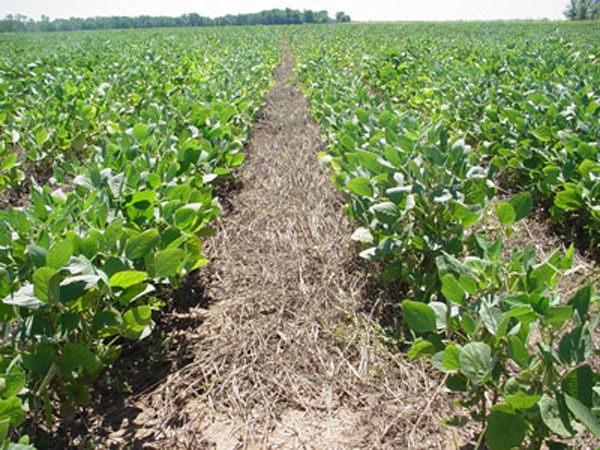March 17, 2014

Have you tried no-till in your fields? According to Chad Lee, this may be something more farmers should consider. No-till practices have recently been credited with increasing soybean yields in certain parts of the country.
“Over the last forty years, no-till practices have come a long way. Farmers have learned to better manage no-till practices, which has improved soybean yield,” says Lee, a University of Kentucky Extension specialist. “No-till practices use less fuel, conserve soil, build soil structure and hold more water, all of which can improve yield.”
In a recent “Focus on Soybean” webcast, Lee discusses the history and benefits of using no-till and how it can significantly impact soil structure.
Factors that lead to better soybean yields in no-tilled fields include:
Better soil structure. Tilled soil is denser and has smaller pores. Using no-till management practices greatly benefits soil structure.
Less erosion and runoff. No-till results in less erosion from field surfaces.
Better water-holding capacity. No-tilled soils have more pore space, which allows soil to hold on to more moisture.
Improvements in soil organic matter. Because of maintaining crop residues in the soil without tilling, the soil also holds more carbon and increases organic matter content as well.
In order for no-till practices to be successful in soybean fields, Lee notes a successful weed-management plan must be in place. Crop rotation as well as a residual herbicide should be applied.
The soy checkoff sponsors the “Focus on Soybean” webcasts through a partnership with the Plant Management Network. All U.S. soybean farmers have access to this full presentation for free until April 14, while a shorter executive-summary version of the presentation is always available.
About the Author(s)
You May Also Like






